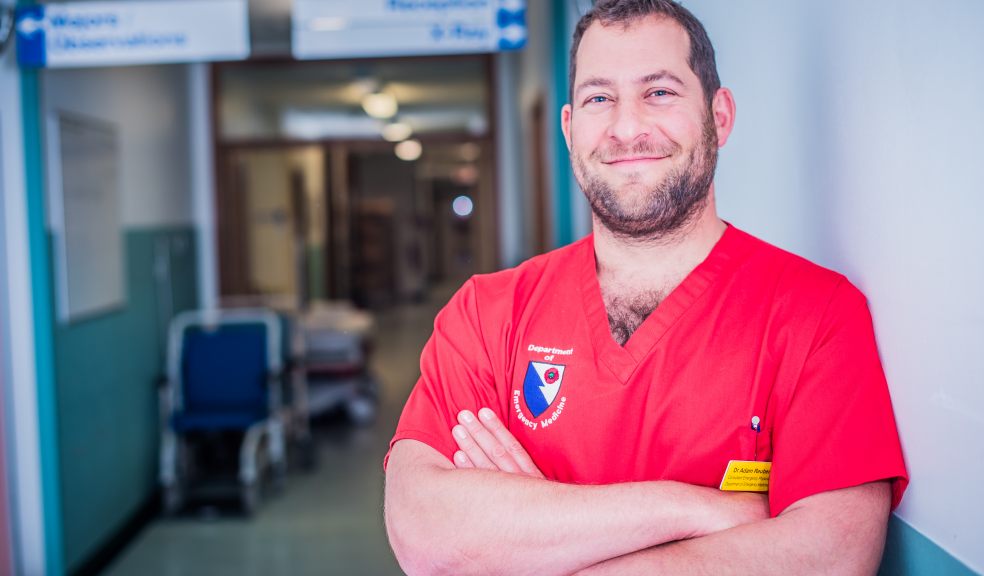
South West leads nose bleed research study
Fourteen NHS emergency hospital departments have opened a new clinical research study led by the Royal Devon & Exeter NHS Foundation Trust which could transform patient experience of the way serious nose bleeds are treated.
Dr Adam Reuben, Emergency Medicine consultant at the Royal Devon & Exeter (Wonford) hospital is the Chief Investigator of the NoPac study.
NoPac is trialling the novel use of Tranexamic Acid to reduce the need for nasal packing to treat acute spontaneous nose bleeds.
Dr Reuben said: “Epistaxis or nose bleeds are an extremely common condition caused by a blood vessel bursting within the nose as a result of trauma or spontaneously. Patients who come to hospital emergency departments are frequently elderly.
“In most cases the bleed can be resolved by simple measures like applying firm pressure with the thumb and index finger to the soft anterior or front part of the nose, the use of ice packs on the bridge of the nose and by leaning forward. If bleeding cannot be stopped patients attending hospital Emergency Departments usually undergo anterior nasal packing which is an extremely uncomfortable experience and can require a hospital stay for several days.
“There can also be complications from nasal packing including infection, sleep apnoea and bleeding on removal of the packing. This procedure is tolerated only on the basis that there is at present little alternative ways to treat it.”
Dr Reuben added: “Tranexamic acid (TXA) has been used in a variety of clinical and research settings to stabilise and stem blood clotting. We trialled at the RD&E hospital a local study to estimate the quantity of TXA applied to a material inserted in the nose and the results suggested that TXA could provide a promising alternative treatment to the current nasal packing practice and greatly enhance the experience for patients in the future.”
The National Institute for Health Research awarded funding through its Research for Patient Benefit Programme. Hospital Emergency Departments in the South West conducting the NoPac study include the Royal Cornwall Hospitals NHS Trust, Plymouth Hospitals NHS Trust, the Royal Devon & Exeter NHS Foundation Trust; Northern Devon Healthcare NHS Trust and Taunton and Somerset NHS Foundation Trust.
The Research Design Service South West supported the evolution of the study design and three of the research team attended the RDS Residential Research Retreat to develop the application ready for submission.
The set-up of NoPac was greatly assisted by the Peninsula Clinical Trials Unit (PenCTU) at Plymouth University. PenCTU support encompassed protocol development, managing regulatory approvals, design of data collection forms and a web-based management system for use in the Emergency Departments, and site set-up and training for the 14 sites.
Recruitment is now underway and the role of the PenCTU in this early stage includes monitoring recruitment, managing patient safety reporting, managing stocks of trial treatment and consumables at sites, and receiving and storing trial data collected by the Emergency Department research teams.
The National Institute for Health Research Clinical Research Network assisted with promotional materials to foster engagement of emergency department staff with the recruitment aims of this study.




















